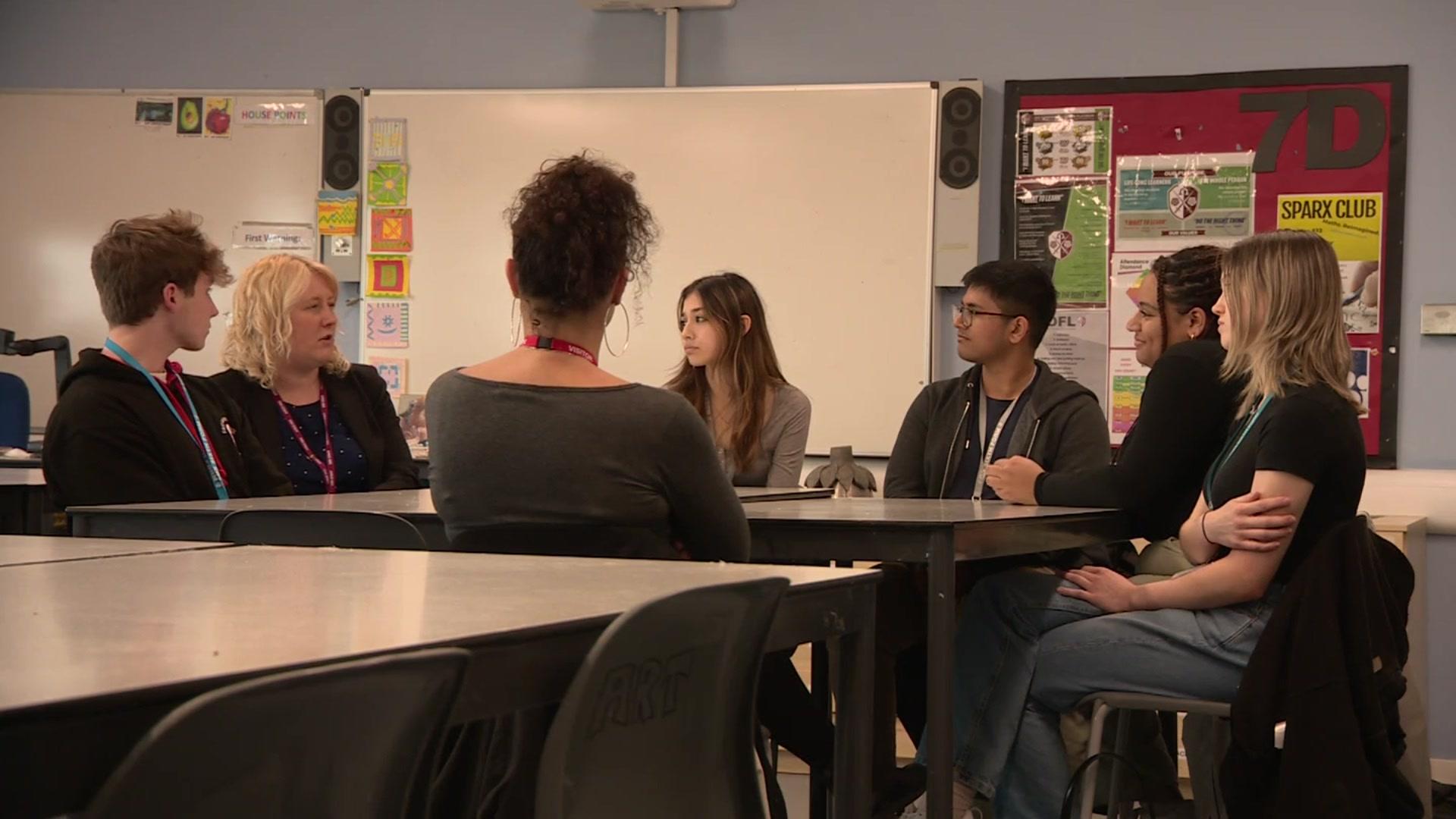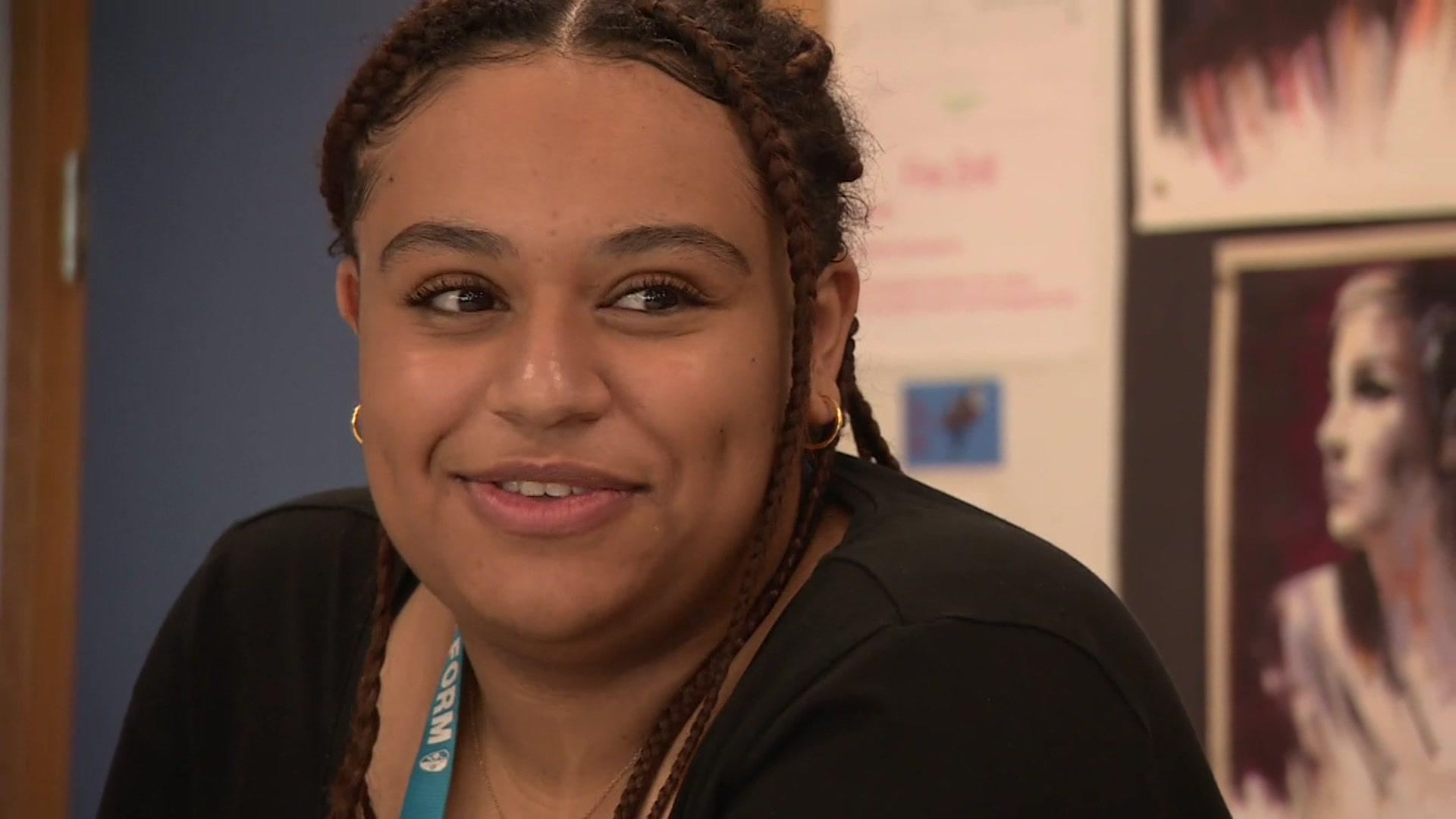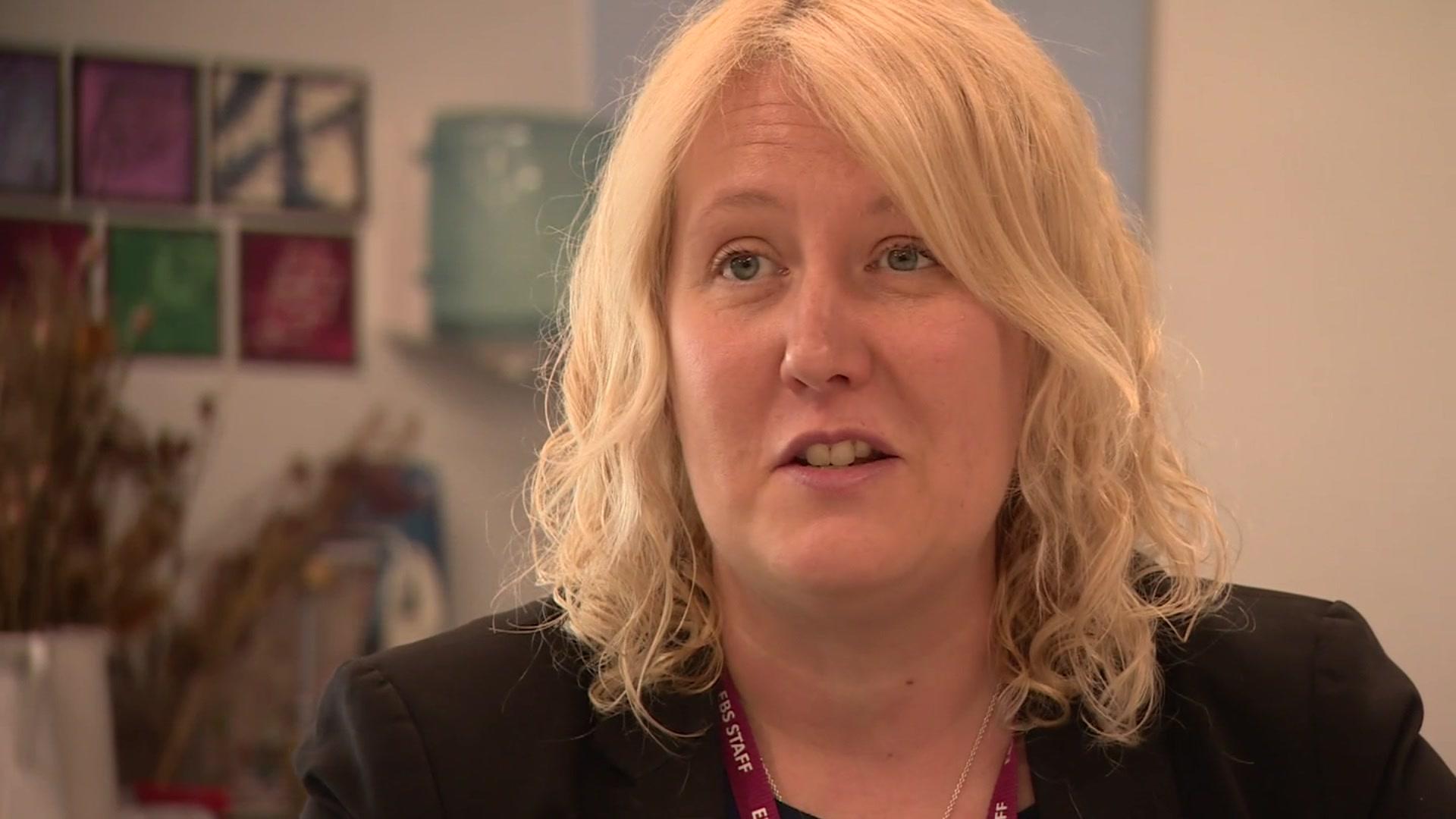Pressure mounts for A-level students following strike disruption

Students at East Barnet School in north London spoke to the BBC about their anxiety of upcoming exams
At a glance
Final-year school pupils are feeling the pressure as they prepare to sit their first exams
The pandemic school closures meant they did not sit GCSEs
Now strikes are impacting their A-level preparation too
- Published
For many Year 13s, their upcoming A-levels are the first exams they will sit.
Most pupils lost over half their expected days in the classroom due to the pandemic, a London School of Economics study found.
With GCSEs cancelled in 2021 for the now-final year cohort at East Barnet School, strike action is impacting their revision time too.
The pressure is mounting up for the students at the north London school, as they report how the stress is impacting them.
More on teacher strikes
More than half English schools disrupted by strikes
- Published16 March 2023
Why are London teachers going on strike? Video, 00:01:28
- Published27 April 2023
'I love teaching but something needs to change' Video, 00:01:21
- Published31 January 2023
Schools minister defends government's strike stance. Video, 00:00:38
- Published1 February 2023
Head of sixth form at the north London school, Lauren Carnegie-Gomez said they have put in measures to help, with school counselling services have been “inundated” as pupils are stressed about upcoming exams.
“The current Year 13s have not had any real examples of exam practice, we’ve given them mocks, obviously, but that just doesn’t have the same high level of pressure,” she said.

Conor said while he supports strikes he wishes there was another way that didn't impact learning
“Students in this year group have struggled with resilience and anxiety as well, as they try as they try to cope with this exam pressure.”
Conor is 18 and is due to take A levels in computer science, economics and history. He says that missing out on six months of school during the pandemic had an affect on his studies and that while he supports the cause of industrial action, he wishes there was another way to bring about change that didn’t impact learning.
“Teachers have to cram as much information in to lessons as possible because of the gaps in our learning and now that we are at the end of the year," he said.
"In some of my courses, we have only just finished the syllabus and we have, two, three weeks until exams. “

Ellie said strike days have often fallen on double lessons
“That’s simply because there was a lack of lessons due to strike days, bank holidays and it’s difficult to catch up with such a small amount of time.”
Ellie is 18 and also taking her A levels in the summer. She hopes to go to university to study towards becoming a midwife and says she fully supports the strike but some of the days have fallen on dates where she has missed double lessons.
She said: “The impact of finishing content has been twice as much to catch up on when I’m at home and twice as much to catch up on when I come back to school”.
Counselling services 'inundated'
But she says she feels that industrial action is important to bring change.
Sophia agrees. She is head student at East Barnet School, she says her mother is a teacher and she sees "both sides”.
“I think it’s a consequence that a lot of students are willing to have and are willing to adapt to.”

Sophia said she sees 'two sides of the story'
Despite England wide walk-outs, at East Barnet School, and others, the majority of lessons will go ahead for those preparing for exams.
The National Education Union has also said, external that to minimise disruption to Year 11 and 13 exam preparation “it is appropriate to seek agreements with head teachers that permit exam year students to attend school” on both 27 April and 2 May strike days for revision activities or exam practice.

Head of sixth form Ms Carnegio-Gomez said teachers are working incredibly hard to keep up
Lauren Carnegie-Gomez said teachers have already been working through the holidays and in their own time to catch young people up on missed learning with extra revision and learning.
“Staff are working at a really fast pace at the moment,” she added.
“We are trying to fill the gaps from Covid and from bank holidays and all of these days that they’ve had off, and staff are working incredibly hard, which is another reason, that industrial action is so important, that we have got the right teachers in the right places and that we are recognising them as well.”

Follow BBC London on Facebook, external, Twitter, external and Instagram, external. Send your story ideas to hellobbclondon@bbc.co.uk, external